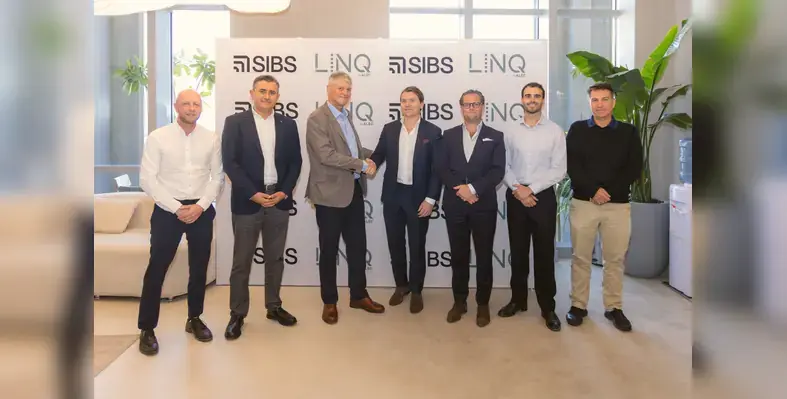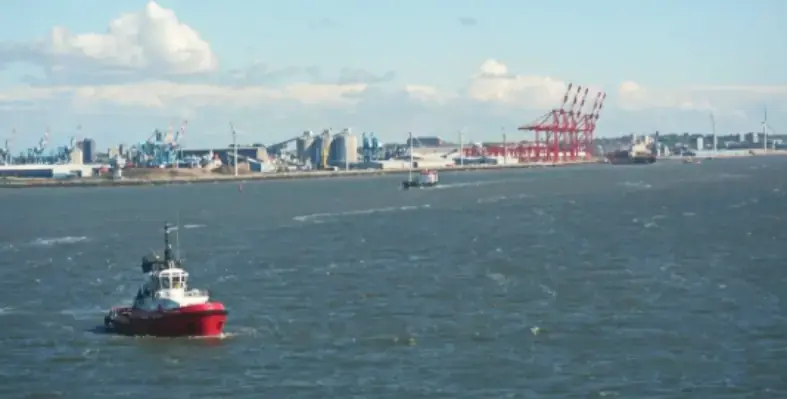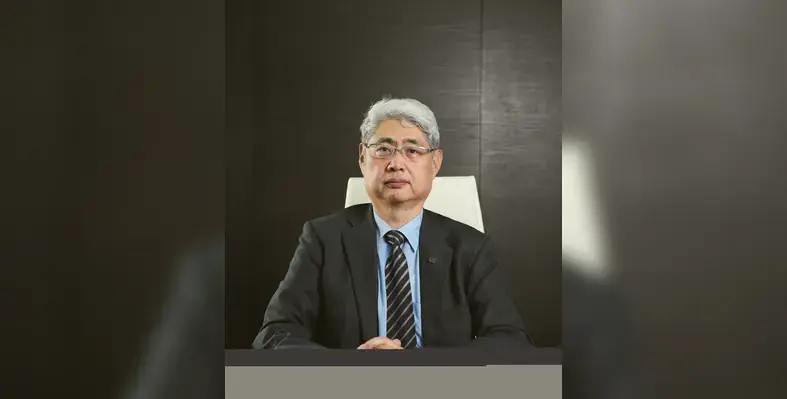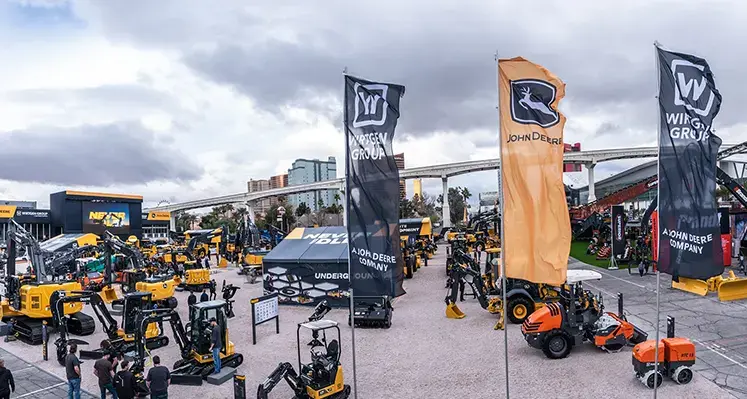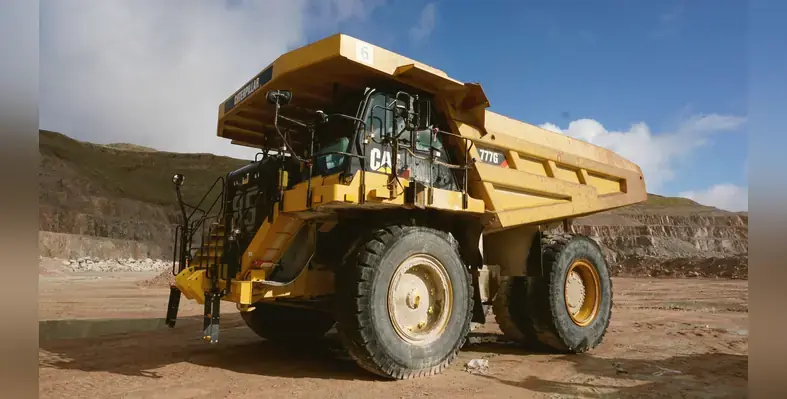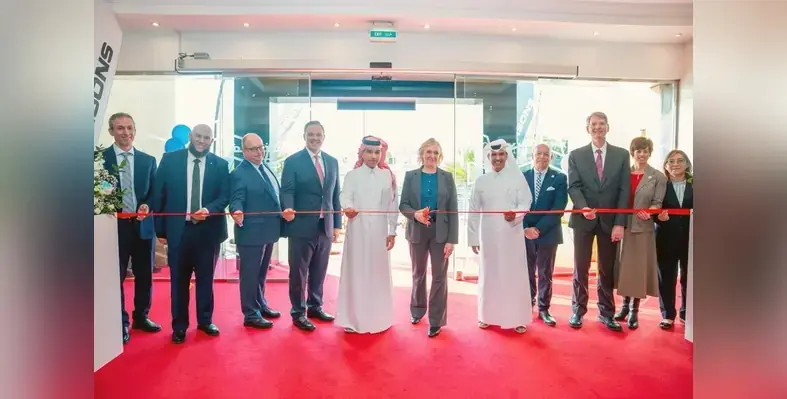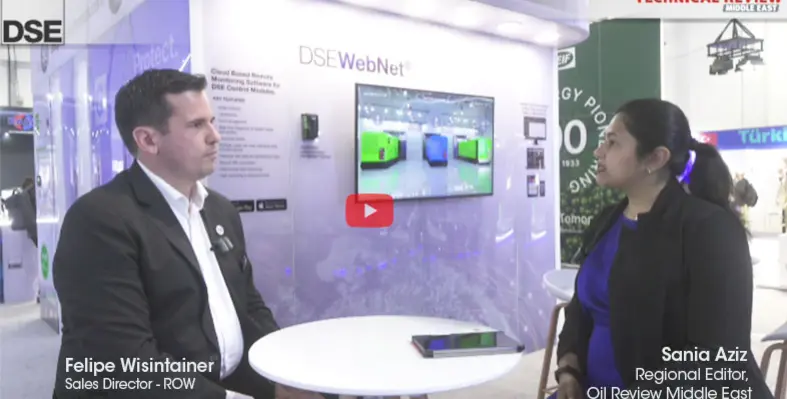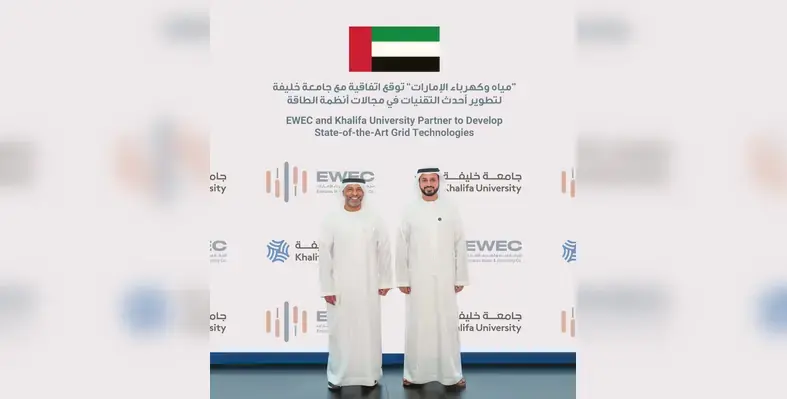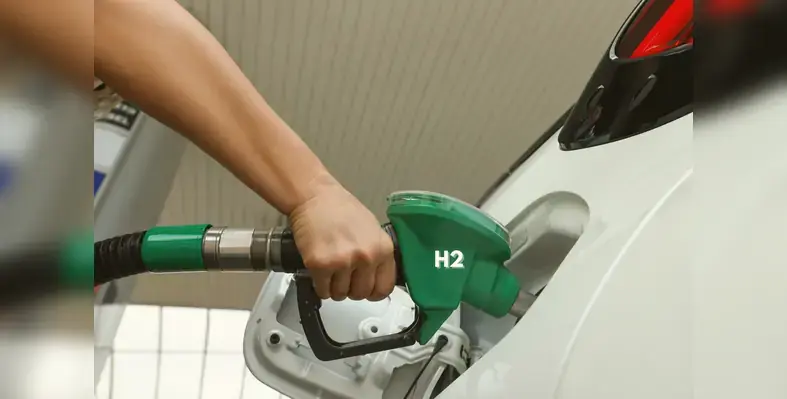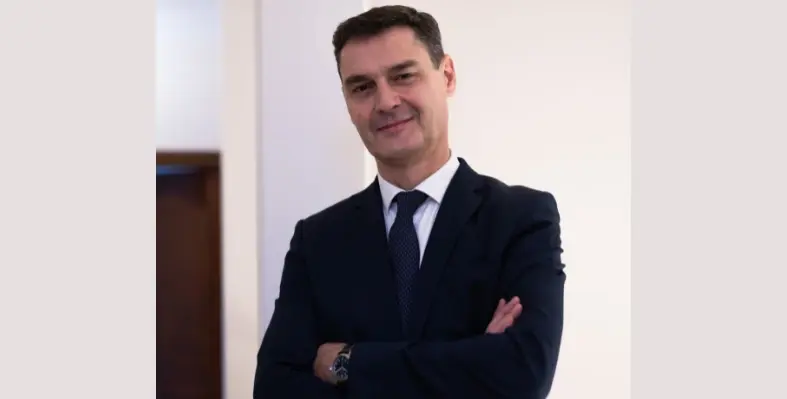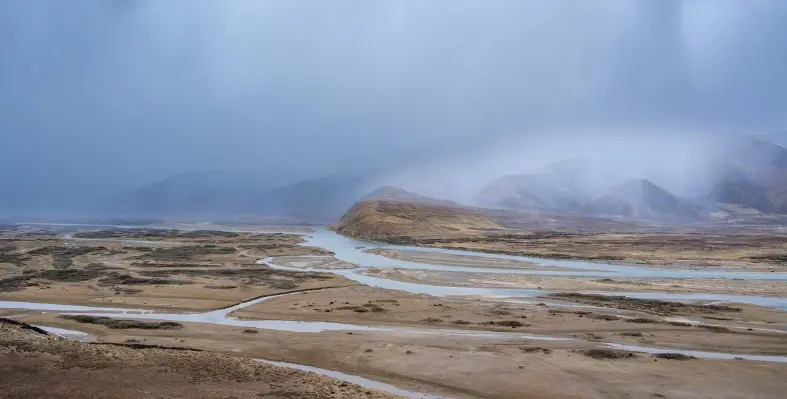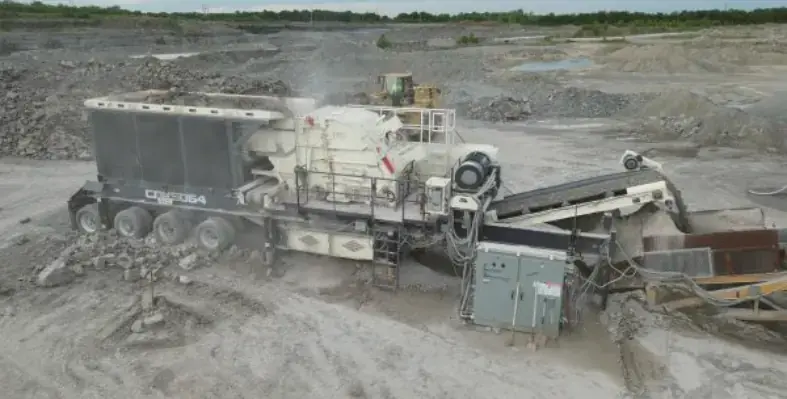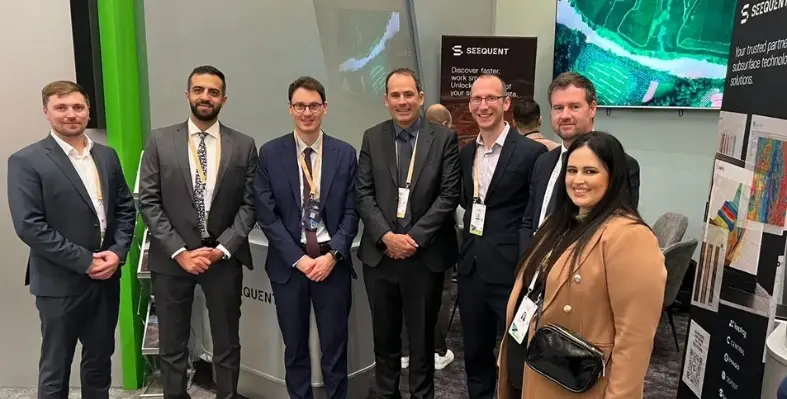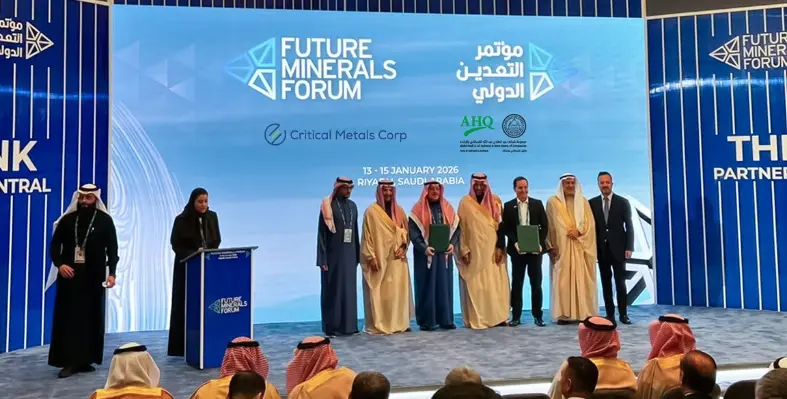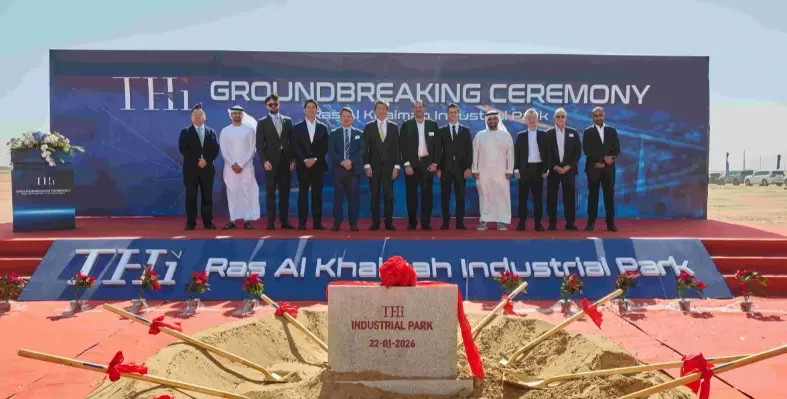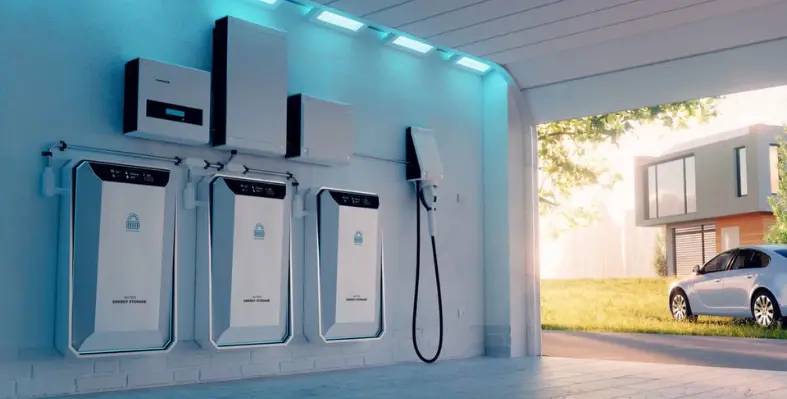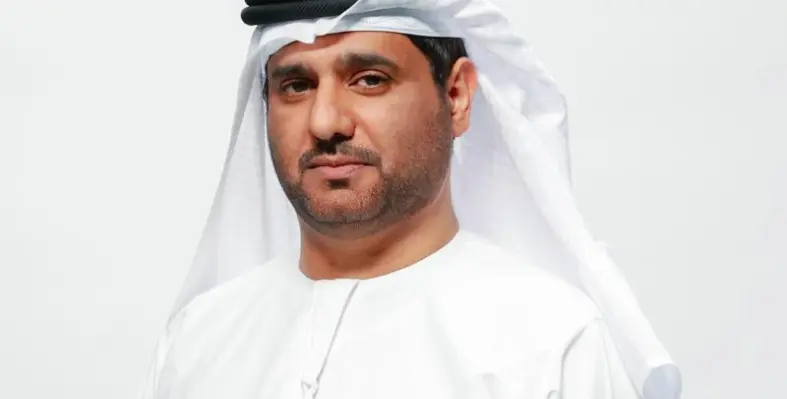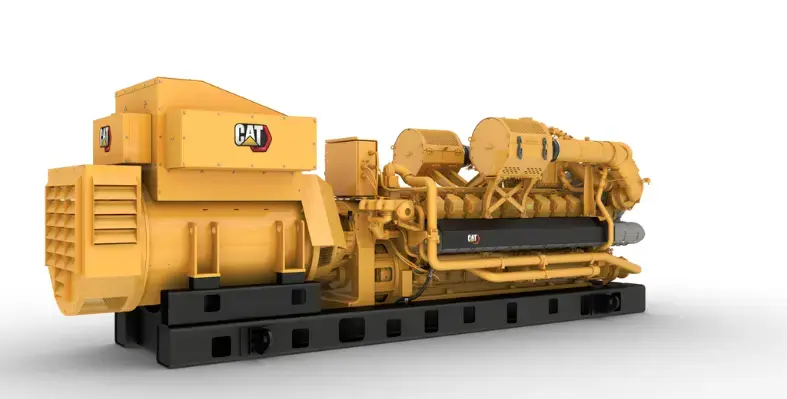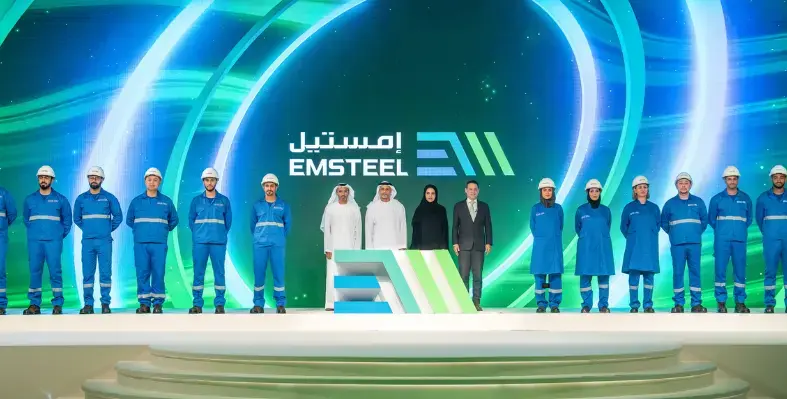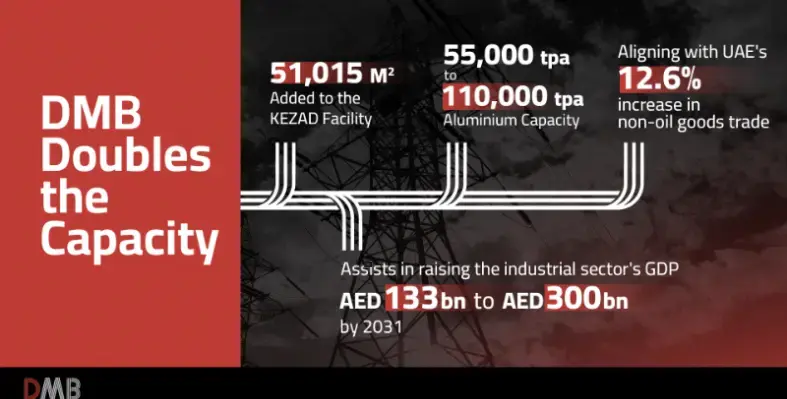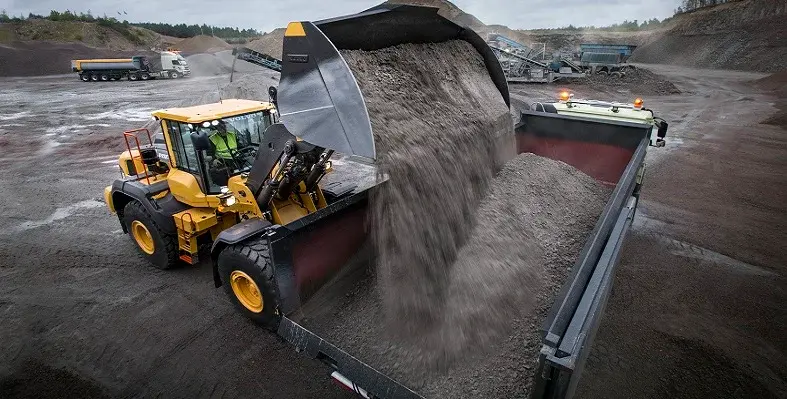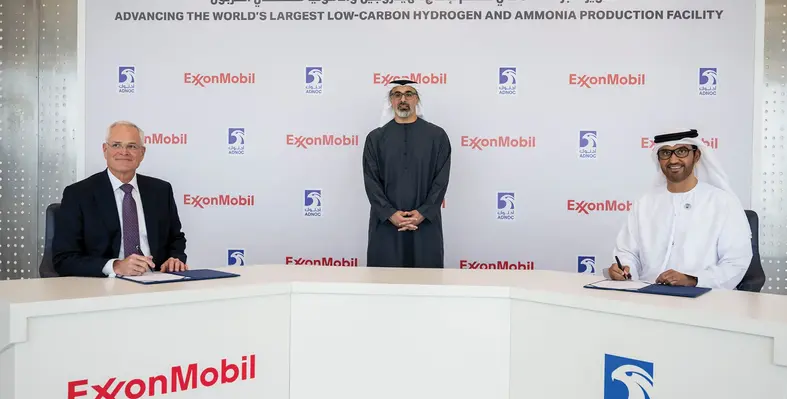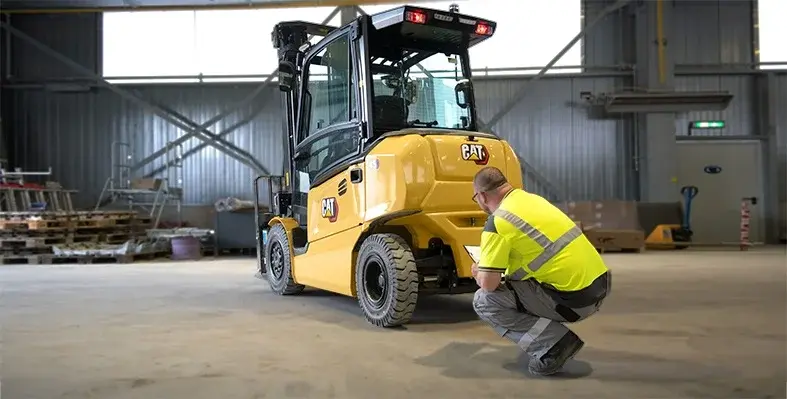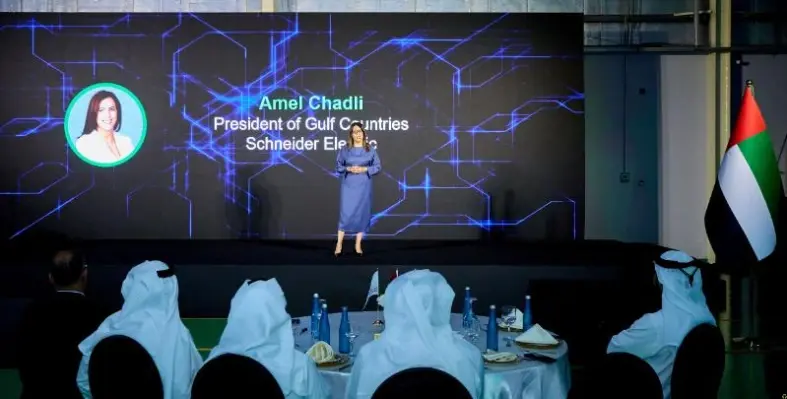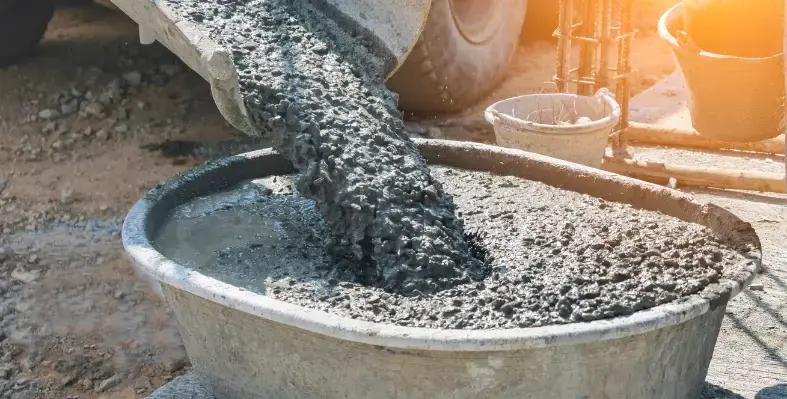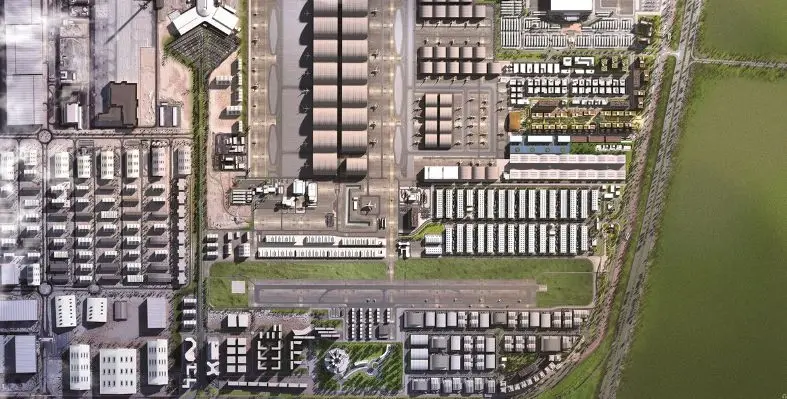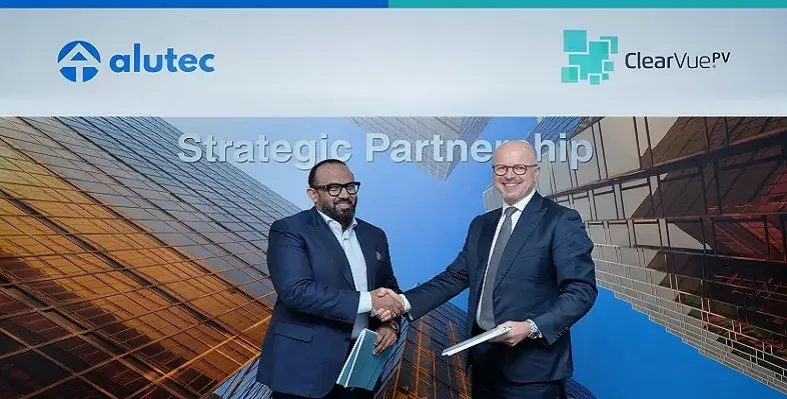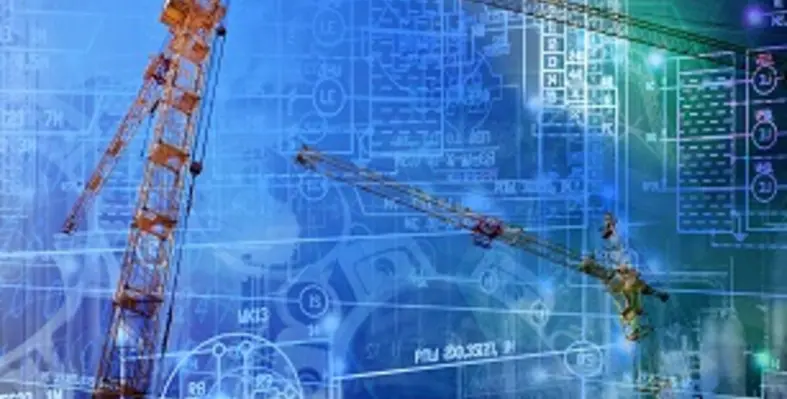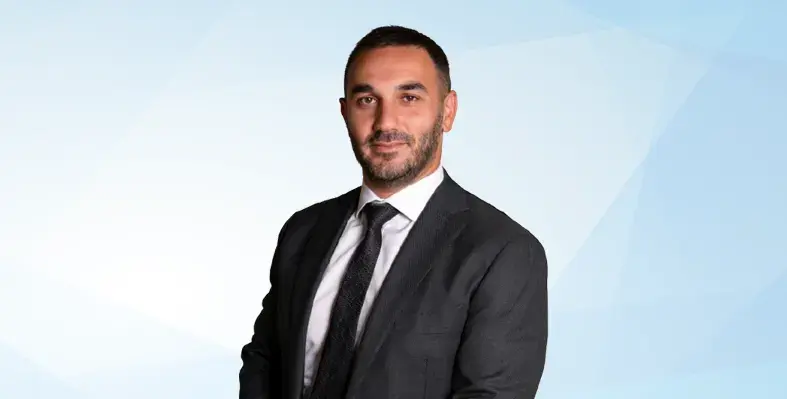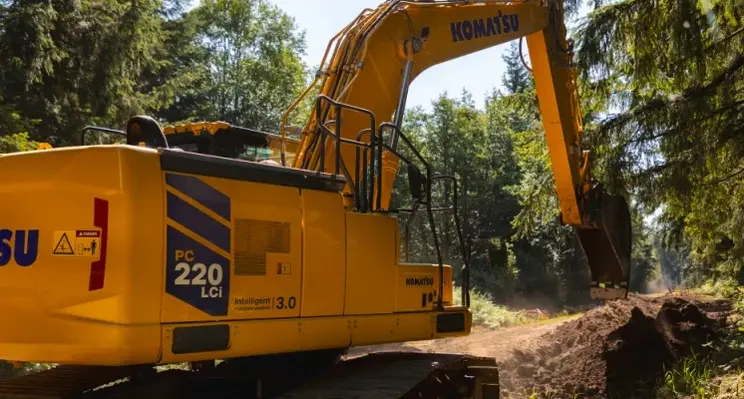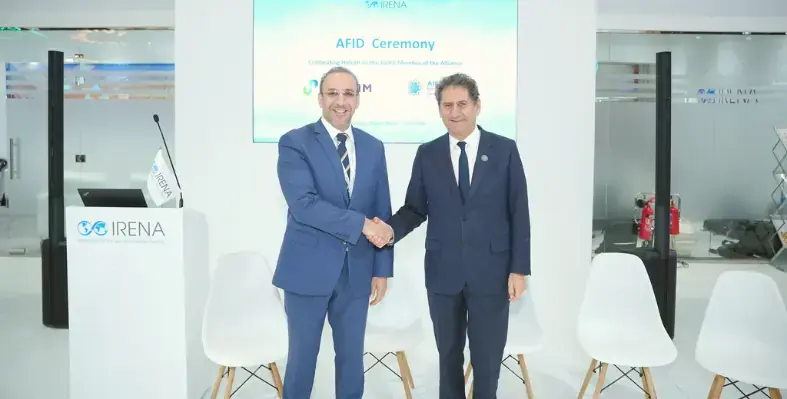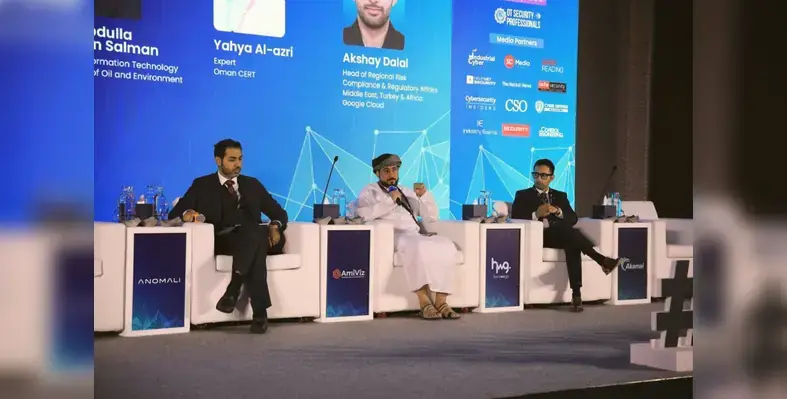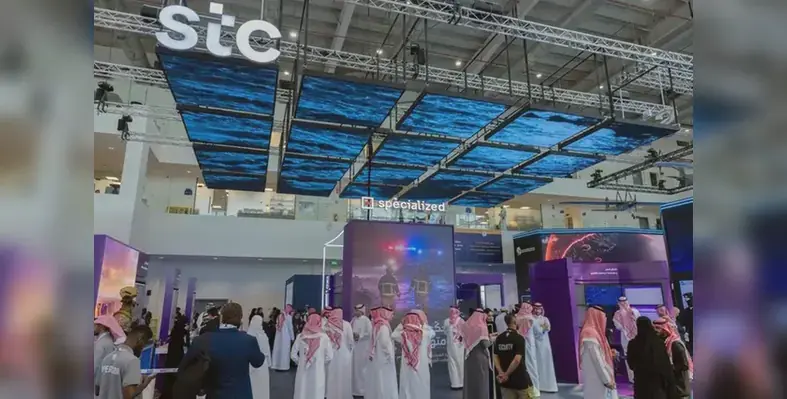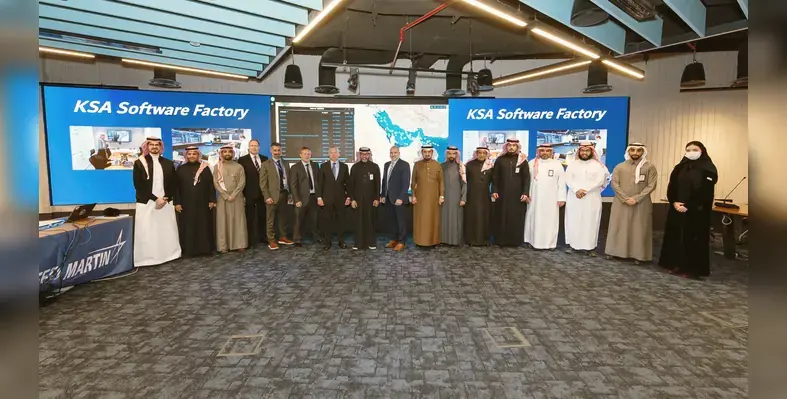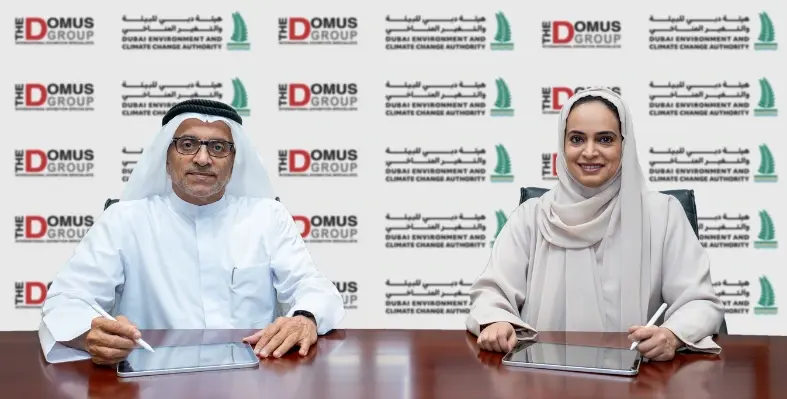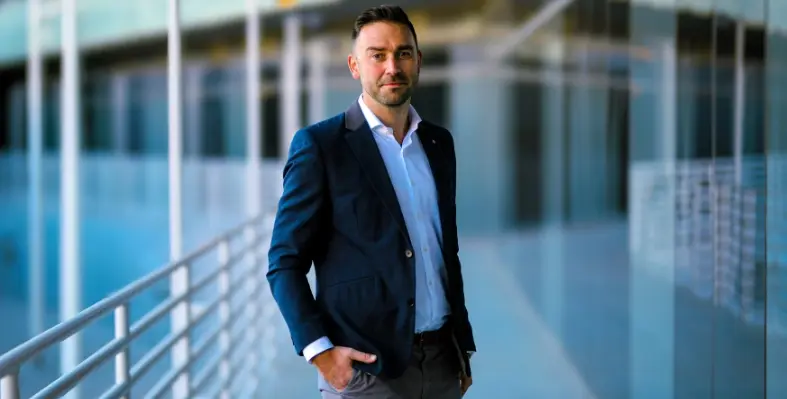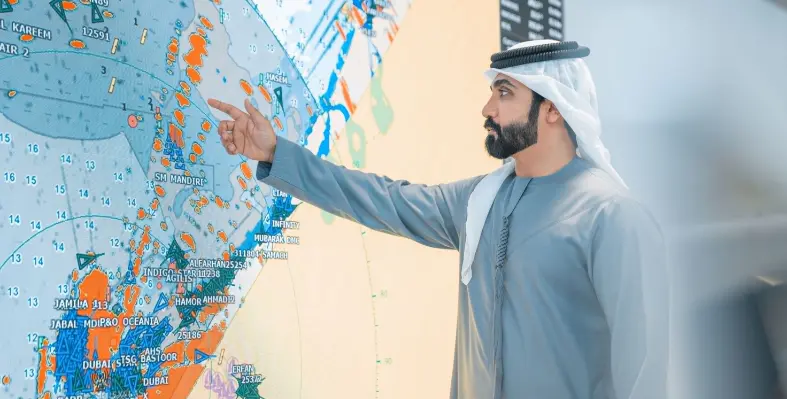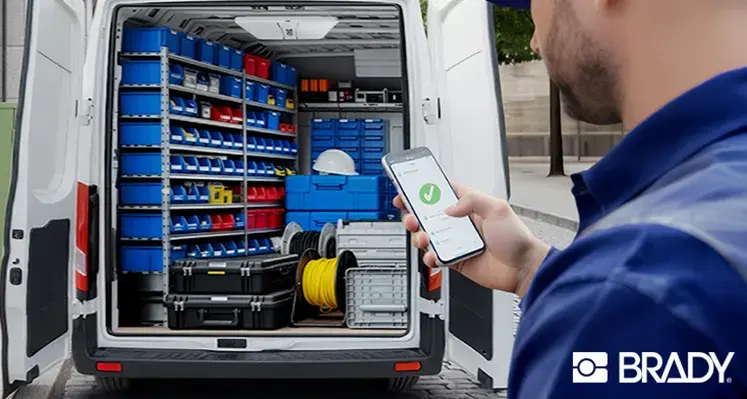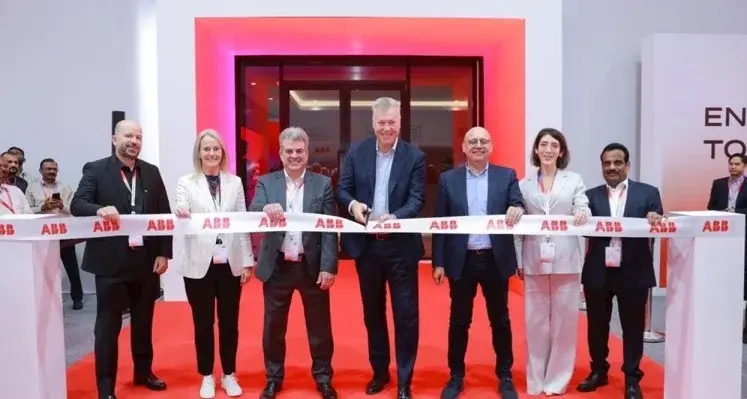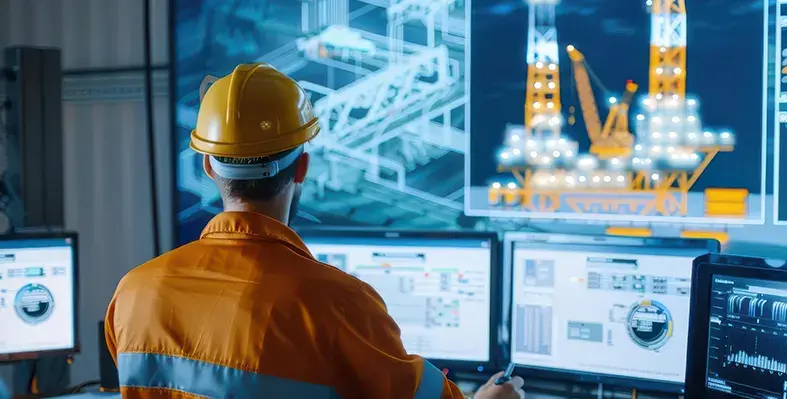In The Spotlight
SIBS AB has signed a strategic collaboration agreement with LINQ Modular, part of ALEC Holdings, to accelerate the delivery of large-scale modular developments across the Middle East, marking a significant step in the region’s industrialised construction landscape.
The partnership brings together SIBS’ international manufacturing expertise in volumetric modular construction with LINQ’s regional delivery capabilities and ALEC Holdings’ established on-site construction experience. The companies aim to deliver faster, more predictable and more sustainable residential, commercial and mixed-use developments as demand for high-quality housing continues to rise across the Gulf.
Building on LINQ’s early work in prefabricated and modular construction since its launch in 2020, the collaboration seeks to scale modular delivery across multiple sectors, including residential, hospitality and commercial developments. Subject to project awards and client approvals, the partners have set a shared ambition to deliver at least 1,500 modular units per year through an industrialised and repeatable production and delivery model.
Under the agreement, LINQ will continue to lead market engagement, regulatory approvals and in-country project delivery, supported by ALEC Holdings’ construction execution capabilities. SIBS will provide large-scale industrial production capacity, design-for-manufacture expertise and factory-controlled quality processes, drawing on its global experience in delivering modular housing at scale.
The collaboration is positioned to address one of the region’s most pressing challenges: the need to accelerate residential delivery without compromising on quality, safety or sustainability. Modular construction offers a solution by shifting a significant portion of construction activity into controlled factory environments, reducing on-site timelines and improving consistency.
A key factor underpinning the partnership is the modular construction licence granted by Dubai Municipality to LINQ, enabling the delivery of G+6 residential and commercial buildings in the emirate. Combined with SIBS’ experience in delivering large apartment complexes internationally, the partners are well placed to respond to strong residential demand across major urban centres in the UAE and wider Gulf.
SIBS brings an established international track record, having delivered approximately 7,000 apartments globally. Its modular systems have typically reduced project timelines by around 40%, lowered production costs by up to 30%, and cut energy consumption by up to 50% compared with traditional construction methods.
Erik Thomaeus, CEO of SIBS, said the collaboration represents a major step forward for modular construction in the UAE, combining SIBS’ industrialised production capacity with LINQ and ALEC Holdings’ regional delivery expertise to offer scalable and predictable modular solutions.
Graham Petty, Operations Manager at LINQ, said the partnership builds on years of groundwork to demonstrate the viability of modular construction at the premium end of the market, enabling the delivery of full-spectrum industrialised construction solutions that support speed, certainty and long-term value.
The collaboration is already progressing multiple near-term project opportunities, reflecting growing market momentum and a robust pipeline of modular-led developments across a range of building types.
Cleanova, a global provider of advanced industrial filtration solutions, has secured a contract to supply critical filtration systems for the Liverpool Bay Carbon Dioxide (CO2) Transportation and Storage project, part of the UK government’s HyNet North West low-carbon and hydrogen initiative.
The contract was awarded by Saipem, the international engineering, procurement and construction company responsible for converting an existing gas compression and treatment facility at Point of Ayr, North Wales, into a CO₂ Electrical Compression Station. The facility will enable the permanent storage of captured CO₂ emissions from heavy industry across North West England and North Wales, with compressed CO2 injected into depleted hydrocarbon fields beneath Liverpool Bay.
Under the agreement, Cleanova will supply purpose-engineered filtration units designed to ensure operational efficiency, safety and long-term reliability across the CO2 transportation and storage process. Each unit, weighing around 50 tonnes, will remove residual amines, water, hydrocarbons and other condensed liquids or particulates from the captured CO2 stream. Removing these impurities is critical to protecting compression equipment, maintaining process integrity and enabling safe, long-term storage.
The Liverpool Bay project is a cornerstone of the HyNet North West industrial decarbonisation cluster and is expected to support the capture and permanent storage of up to 4.5 million tonnes of CO2 per year. Once fully operational, the project will make a significant contribution to the UK’s net-zero targets and wider energy-transition objectives.
Macer Braidwood, Cleanova’s global market manager ‐ energy transition, said, “Our custom filtration systems already play a vital role in the energy transition by capturing emissions and purifying process streams across a wide-range of clean-energy applications. Being selected to support the UK's first large-scale carbon capture and storage project is an important milestone for Cleanova. We are proud to partner with Saipem on the Liverpool Bay CCS project and to contribute our filtration expertise to an initiative that will deliver meaningful, long-term environmental impact. It is another step to our mission to provide filtration solutions today for a better tomorrow.”
Once overshadowed by hydrocarbons, the UAE’s manufacturing sector has now become a driving force for innovation, investment, and sustainable growth across the country. Without a doubt, manufacturing is poised to take centre stage in the country’s long-term aspirations for economic growth and resilience.
Various initiatives from the UAE’s visionary leaders all point towards continuously building, enhancing and reinforcing conditions that will further encourage investments and enable industrialisation to thrive and prosper.
Among them is Operation 300bn, the UAE’s national industrial strategy launched in 2021 which aims to more than double the industrial sector’s GDP contribution from AED133 billion in 2021 to AED 300 billion by 2031.
In addition, programmes, projects and initiatives by the Ministry of Industry and Advanced Technology (MoIAT) such as the National In-Country Value Program (ICV), ‘Make it in the Emirates’, the Technology Transformation Program (TTP), and the Industrial Technology Transformation Index (ITTI) have all been designed and geared towards pro-actively pushing forward the UAE’s manufacturing and industrial ambitions.
Clearly, the UAE is well on track on achieving its industrialisation objectives and its relentless pursuit of economic diversification have already produced remarkable results.
In the first quarter of 2025, non-oil GDP grew 5.3% , reaching AED 352 billion, according to the UAE's Ministry of Economy and Tourism (MOET). The ministry also identified manufacturing as the fastest growing economic activity, registering 7.7% growth in Q1 2025.
According to the latest report by Abu Dhabi Customs, Abu Dhabi's non-oil foreign trade grew by 34.7% in H1 2025, reflecting a thriving manufacturing industry and a key source of UAE exports.
Driven by visionary leadership
It is quite evident that the vision of the UAE’s leadership for the future of this great nation is fuelled by a determination to thrive, succeed and lead.
Not only are they aiming and enabling the manufacturing sector to grow, but they also implement a deliberate governmental policy and strategy that focuses on strengthening the adoption of advanced manufacturing, sustainability, and Industry 4.0 technologies including artificial intelligence, the Internet of Things (IoT), and 3D printing.
Over the years, the UAE's manufacturing sector has continuously demonstrated its resilience. In 2022, manufacturing GDP growth surpassed pre-pandemic levels by tallying 8.75% growth.
With Abu Dhabi leading the way with a growth of 9.7% , the emirate even further sharpened its focus on manufacturing with the launch of the Abu Dhabi Industrial Strategy (ADIS) in the same year. As a result, in the first half of 2025, Abu Dhabi's non-oil GDP grew 6.37% year-on-year, according to the Statistics Centre - Abu Dhabi
The attractiveness and pull for foreign investment into the UAE’s manufacturing sector have also remained strong. At the fourth edition of 'Make it in the Emirates', a 122,000-strong participation of delegates from across the world was a clear indication of the global attention to the sector’s growing appeal.
With US$11bn committed to advanced manufacturing over five years, the UAE is sending a clear message: it is open for industrial business, and it is serious about reducing its reliance on oil.
Innovation and sustainability at the core
Recognising the need to catch up with countries with larger and more advanced manufacturing sectors in a globalised market, the UAE is not just building factories – it's building smart factories.
Industry 4.0 technologies are being integrated into production lines, making UAE manufacturing globally competitive. Sustainability is also a priority, with circular economy models becoming standard practice.
Solar-powered facilities take advantage of the abundant sunshine, while water recycling systems ensure efficient use of water in a desert climate.
These are supported by the MoIAT's ITTI, which measures the digital maturity and sustainability practices of factories, provides a roadmap for their digital transformation and encourages the adoption of Industry 4.0 solutions and sustainability best practices.
Turning challenges into opportunities
While there are indeed challenges in the UAE’s journey towards economic diversification and industrialisation, the country’s leaders have cleverly manoeuvred around them and have instead focused on capitalising on the opportunities presented by these challenges. An uneven manufacturing growth among the emirates is being addressed by the federal government through Operation 300bn, with a focus on equitable development.
Among its goals is to create 13,500 new industrial facilities and 25,000 specialised jobs, many of which are being directed toward less industrialised regions.
For instance, MoIAT is working to ensure that Northern Emirates like Ras Al Khaimah, Fujairah and Umm Al Quwain benefit from industrial expansion through tailored support and infrastructure upgrades.
Additionally, the ICV program provides incentives for companies sourcing locally, further benefiting the economy. These initiatives create numerous opportunities for businesses and individuals to widen their reach in the burgeoning manufacturing sector.
In line with the rapid adoption of Industry 4.0 technologies, the UAE is also strengthening partnerships among industry, academia and various vocational training programmes, in collaboration with global tech companies, to help bridge any skills gap and ensure a seamless transfer of the latest technological knowledge to the UAE workforce.
Today, the UAE’s manufacturing sector stands at a pivotal juncture. With the UAE's emphasis on attracting investments and prioritising inclusivity, innovation, and sustainability, the country is laying the foundation for long-term industrial leadership.
Alongside policy support, the UAE's strategic location and rapidly improving infrastructure position it as a rising global manufacturing hub.
Manufacturing is no longer just a supporting act in the UAE’s economic story. It’s now a lead character that plays a vital role in shaping a resilient, innovative, and sustainable future for the country.
By Noritsugu Mifune, CEO, Al Gharbia Pipe Company
Wirtgen Group and John Deere are set to make a major impact at Conexpo 2026, unveiling six market premieres and three global firsts alongside a broad portfolio of advanced machines, automation systems and digital solutions
With a total of 24 world and market premieres on display, the joint exhibition will focus on boosting productivity, transparency and profitability across road construction, earthworks and materials processing.
Visitors to the shared stand (Silver Lot SV2415) will experience a construction site-centric showcase, including a dedicated presentation of the John Deere Operations Center located on the ground floor of the Innovation Center. Designed as a central digital hub, the platform consolidates machine, job and performance data in one place. The exhibit will also highlight a comprehensive suite of digital aftermarket solutions on the upper floor.
A total of 14 Wirtgen Group machines will feature the latest automation and data-driven technologies, including the Wirtgen Group Performance Tracker combined with solutions such as AutoPilot 2.0, Smart Level Pro, Smart Pave, Smart Compact Pro and SPECTIVE CONNECT. These technologies automate workflows while capturing and analysing performance data, enabling more efficient, transparent and cost-effective execution across every phase of the construction process.
Global firsts and market premieres
Cold milling specialist Wirtgen will introduce a world premiere that opens up an entirely new application area for customers, with full details to be revealed at the start of the exhibition. Also on display will be the new WR X-Tier generation of wheeled cold recyclers and soil stabilisers. These machines cover applications ranging from structural road rehabilitation to soil stabilisation and material consolidation in road construction.
The WR X-Tier series features an intuitive Human-Machine Interface (HMI) that provides interactive digital guidance to improve mixing quality and productivity. Digital assistants such as MIX ASSIST and Wirtgen Group COPILOT further enhance efficiency while reducing operating costs per square metre.
Vögele will debut the latest Dash 5 paver generation for the North American market, offering improved operator ergonomics, faster setup, higher automation levels and a more efficient drive system. Key highlights include world premieres in the 10 ft class: the SUPER 2000-5 X tracked paver and the SUPER 2003-5 X wheeled paver, both equipped with newly developed screeds. The range is complemented by the SUPER 2100-5 X, featuring a high-compaction screed suited for roller compacted concrete applications.
In the Mini Class segment, Vögele will present the SUPER 800-5 P, the successor to the SUPER 700. This compact Dash 5 paver introduces the ErgoBasic 5 operating concept and a redesigned hopper wall geometry that improves visibility and loading flexibility. All Dash 5-X-Tier pavers can be fitted with the latest digitalisation and automation solutions.
Automation and precision compaction
Hamm will focus on automated compaction technologies, highlighting enhancements to the Smart Compact system. Smart Compact Pro now integrates real-time asphalt density measurement through the new Realtime Density Scan function, enabling automated adjustment of compaction energy and modes on HD+ and HX series tandem rollers. Operators can monitor density development in real time across the entire jobsite, including during static compaction.
This capability supports precise compliance with specifications, reduces the risk of penalties and lowers overall project costs while contributing to longer pavement service life. Hamm will also introduce solutions for earthworks, including automated amplitude adjustment based on new measurement values, and a new compactor model designed specifically for the North American rental market.
Materials processing and digital connectivity
For materials processing, Kleemann will present the MOBISCREEN MSS 1102 PRO scalper, making its North American debut. Designed for quarry applications, the PRO Line screening plant handles throughput of up to 750 t/h and features an intuitive control system that minimises operating errors and training time. Remote operation enhances safety, while the optional Dual Power drive allows for all-electric operation.
Kleemann screening plants can now be equipped with SPECTIVE CONNECT, providing operators with real-time machine data via smartphone. The integrated stockpile monitoring function offers clear visibility of material status, improving productivity and site coordination.
John Deere Operations Center as the digital backbone
At the core of the digital offering is the John Deere Operations Center, which brings together all data required for end-to-end construction site management. Project data can be transferred directly to machines via the integrated Work Planner, enabling partially automated execution. Users gain continuous insight into project progress through performance data generated by Wirtgen Group Performance Tracker solutions covering milling, paving, compacting, crushing and stabilising.
With smart hardware and software, existing machines can be quickly retrofitted to capture and document performance data. These digital solutions help contractors meet reporting requirements with minimal additional effort, reducing administrative burden while streamlining daily operations.
As manufacturing across the GCC accelerated towards digitalisation, advanced design and engineering software becomes central to competitiveness. GDS Middle East has played a pivotal role in supporting local manufacturers to modernise product development, engineering workflows and production processes.
In an exclusive interview with Technical Review Middle East, director Jimmy Joseph highlighted the company's main offerings, which include bespoke solutions for the manufacturing sector.
The company enables local firms to shorten product development cycles by facilitating the adoption of tools such as Solidworks, Catia, Enovia and Simulia.
These are platforms which, according to Joseph, allow engineering teams to iterate designs more quickly, test and optimise solutions early in development, and respond faster to market demands.
“These technologies allowed engineering teams to test, refine and optimise designs early in the development phase, which significantly reduced time to market,” he said.
Solutions such as Solidworks Sheet Metal Design also help manufacturers optimise material usage and streamline production processes, reducing waste and lowering costs.
GDS additionally supports firms seeking differentiation through customisation, allowing manufacturers to meet specific client requirements and target niche markets.
But this is not the company's only offerings.
Training and upskilling forms a core part of GDS Middle East’s approach.
Joseph highlighted the importance of capability building, explaining that “technology alone does not deliver results. It is about enabling engineers and designers to use these tools effectively, and that comes through hands-on training and ongoing support.”
How can automation help?
Industry insights and analytics provided by GDS further helps manufacturers align their product strategies with market trends, improving efficiency, productivity and competitiveness across the region.
Digital tools also reshaped engineering workflows. Platforms such as Solidworks PDM and Enovia, deployed either on premise or via the 3D Experience cloud platform, enabled real-time collaboration across teams and stakeholders, regardless of location.
Automation through tools like DriveWorks allowed repetitive tasks to be handled efficiently, freeing engineers to focus on complex design and innovation.
Data-driven features and AI-enabled analytics provided insights that helped optimise both processes and products.
Simulation tools such as Abaqus and Solidworks Simulation accelerated development by allowing virtual testing and validation before production, reducing time, costs and risk.
Generative design and additive manufacturing added additional efficiencies by creating optimised, material-efficient designs.
GDS Middle East also addressed the challenges manufacturers faced in adopting new software.
But there are challenges ahead
Resistance to change, integration with existing systems, skill gaps and high initial investment costs were common barriers.
Joseph noted that the company worked closely with clients to demonstrate the long-term value and ROI of technology adoption, and that “annual subscription offerings from Dassault Systèmes help customers reduce the initial cost drastically and absorb it into operating budgets.”
Tailored solutions and ongoing technical support ensured firms could continue optimising their workflows.
Looking ahead, Joseph believes the greatest opportunities for design software lay in streamlining the entire manufacturing lifecycle.
“Advanced design and analysis tools can streamline the design process through simulation, reducing time-to-market and enabling faster iterations and modifications,” he said.
Cloud-based collaboration facilitates communication across dispersed teams, generative design enables customised products, and integration with manufacturing execution and ERP systems creates connected workflows that reduce errors and enhance efficiency.
GDS Middle East positions itself not simply as a software provider but as a technology implementation partner.
A fully integrated platform
Its end-to-end approach—from collaboration and design to manufacturing and dispatch—combined with in-house technical expertise and continuous support, allows manufacturers in the GCC to adopt, integrate and benefit from digital tools effectively, improving competitiveness in an increasingly digital industrial landscape.
As Joseph puts it, “GDS Middle East is uniquely positioned to seize new opportunities in the GCC by serving as a true technology implementation partner rather than just a product supplier.”
He adds that his company's skilled in-house technical team “sets us apart in the region, allowing us to support clients beyond the sale with hands-on customization, training, and continuous support. In short, GDS captures opportunities by being the partner that helps customers implement and succeed with technology, every step of the way.”
UAE-based fuel technology company Fuelre4m has announced new results showing its fuel treatment can deliver consistent fuel efficiency and emissions reductions across buses, trucks, and heavy equipment operating in real-world conditions.
Independent testing led by the National Technical University of Athens (NTUA), one of Europe’s leading engineering and applied sciences universities, evaluated Fuelre4m’s technology under tightly controlled laboratory conditions using a commercial diesel engine running on standard B10 biodiesel. The tests recorded 3.5–6.7% lower fuel consumption at identical engine speed and mechanical torque, alongside consistent efficiency improvements of 15–21% in the dominant mid-load operating range of approximately 1,400–1,550 RPM.
“The laboratory result establishes a conservative baseline under fixed torque, while real-world operation allows the same efficiency improvement to reduce torque demand, improve gear behaviour, and compound over time, resulting in larger total fuel savings across a complete duty cycle. Crucially, the only variable introduced during testing was the treatment of the fuel itself, with no changes to engine hardware, electronic calibration, operating limits, or fuel specification,” Fuelre4m said.
The NTUA laboratory findings are now being reinforced by repeatable real-world trials across UAE transport and industrial fleets. These include city and intercity buses operating on Dubai service corridors, mixed fleets incorporating VDL and King Long buses, and heavy trucks and off-highway equipment operating under high-load conditions. Once sufficient fuel contact time is achieved, measured fuel efficiency improvements frequently match or exceed laboratory results. Fixed-route trials on UAE buses show directional fuel consumption reductions of approximately 14–17%, with the strongest improvements consistently appearing in the mid-RPM “working bands” that dominate urban and intercity duty cycles.
Trials were conducted across mixed fleets spanning multiple manufacturers, engine sizes, and emission standards, confirming that the benefits are not limited to a single platform or technology generation. No adverse impacts were observed on drivability, engine temperatures, or aftertreatment systems. Quarry and heavy-equipment trials, including large off-highway haul trucks, demonstrated reduced fuel consumed per unit of work, with several recording double-digit efficiency improvements while maintaining or increasing productivity.
Commenting on the findings, George Papalambrou, Associate Professor of Control Systems at NTUA, who oversaw the independent testing, said, “We were genuinely surprised by the consistency and magnitude of the mid-range efficiency improvements. The results were not isolated to a single operating point and were observed under multiple control regimes. This is a positive development not just for one sector, but potentially for all industries relying on internal combustion engines, including shipping and maritime transport.”
Rob Mortimer, CEO of Fuelre4m, said, “For decades, the industry has optimised engines around the assumption that fuel behaviour is fixed. These results show that when you improve how fuel behaves, efficiency and emissions improve immediately, using the engines already operating across the UAE today.”
Fuelre4m is expanding controlled in-service validation programmes across the UAE in collaboration with fleet operators, government entities, and industrial partners. These programmes will focus on high-utilisation routes, long-duration performance validation, and quantified emissions reduction under representative operating conditions. Further independent testing using fully instrumented dynamometer facilities is also planned to extend validation into transient operation and regulatory-grade certification environments.
Parsons Corporation has officially opened its new regional office in Doha, marking a significant expansion of the company’s footprint in Qatar and reinforcing its long-term commitment to supporting national development priorities.
The office was inaugurated by Carey Smith, chair, president, and chief executive officer of Parsons Corporation. The event was attended by senior representatives from the U.S. Embassy Doha, Qatar’s Public Works Authority, Qatari Diar, the American Chamber of Commerce Qatar, alongside Parsons’ regional leadership team and employees.
Located in Al Emadi Financial Square, the new Doha office will serve as a regional design hub for Parsons’ expanding portfolio of infrastructure design, urban development, mobility and programme management projects across Qatar. The facility is intended to enable closer collaboration with clients, project teams and stakeholders as major infrastructure and development programmes across the country continue to progress.
“Parsons’ growth in Qatar underscores the company’s outstanding reputation in the Middle East, our position as a trusted partner to our customers, and our competitive advantage in the region,” said Smith. “For more than two decades, we’ve proudly partnered with important customers across Qatar to deliver on some of the nation’s most prominent and vital infrastructure projects. Expanding our physical presence in Doha strengthens our ability to deliver complex, mission-critical programmes with speed and agility. This expansion strengthens our regional presence and global capabilities, and highlights the important role our thriving Middle East portfolio plays in the company’s continued global success.”
Parsons has maintained a presence in the Middle East since the 1950s and brings extensive regional expertise across project and programme management, urban development, transportation and master planning. Its capabilities span rail and metro systems, aviation, roads and ports, smart mobility solutions, asset management and large-scale urban development programmes.
In Qatar, Parsons has played a key role in delivering sustainable infrastructure and smart city initiatives aligned with the country’s long-term vision for growth. The company has contributed to several landmark national projects, including the FIFA World Cup Qatar 2022, Seef Lusail Development, Al Khor Expressway, Lusail Light Rail Transit, Doha Metro networks and the expansion of Hamad International Airport.
The new Doha office builds on Parsons’ more than 25-year track record in Qatar, during which the company has supported transportation planning, expressway programmes, major roadway and drainage systems, as well as programme, construction management and advisory services for national infrastructure initiatives.
The office will host multidisciplinary teams supporting a pipeline of ongoing and upcoming projects across Qatar, positioning Parsons to respond efficiently to future opportunities while continuing to deliver complex infrastructure programmes that support economic growth and urban development in the country.
Jeddah, Saudi Arabia
Emirates Water and Electricity Company (EWEC) has signed an agreement with Khalifa University of Science and Technology to jointly develop advanced energy system tools aimed at strengthening the stability and resilience of the UAE’s rapidly decarbonising power sector.
The collaboration will focus on developing intelligent, software-based solutions to support grid stability as renewable energy penetration accelerates across Abu Dhabi and the wider UAE. The initiative comes as EWEC advances a major transformation of the water and power sector, targeting nearly emissions-free water production by 2030 and meeting 60 per cent of Abu Dhabi’s electricity demand from renewable and clean energy sources.
EWEC’s strategy includes the large-scale rollout of utility-scale solar photovoltaic (PV) capacity, forecast to exceed 30GW by 2035, alongside 8GW of battery energy storage systems. The transition is further supported by the decoupling of water and power production through low-carbon reverse osmosis desalination.
As variable renewable energy sources become increasingly integrated into the grid, managing system stability has become a critical priority. Under the agreement, EWEC and Khalifa University will develop intelligent software modules to support the integration of large-scale PV generation and energy storage into the power system. These tools will include predictive modules to forecast power ramping requirements, providing advisory support to operators to ensure secure operation within system limits.
The partnership will also deliver machine learning-based tools to estimate system inertia and forecast frequency deviations, alongside recommendations to mitigate potential grid stability risks.
Ahmed Ali Alshamsi, Chief Executive Officer of EWEC, said the collaboration supports EWEC’s broader role in shaping the UAE’s energy future through strategic planning and the deployment of large-scale solar and battery assets, while accelerating the transition to near-zero-emission water production via reverse osmosis. He added that integrating advanced analytics and AI-driven forecasting into operations will help build a future-ready water and power sector and support progress towards the UAE Net Zero by 2050 Strategic Initiative.
His Excellency Professor Ebrahim Al Hajri, President of Khalifa University, said the partnership demonstrates the role of academia in addressing real-world energy challenges and positions the university at the intersection of innovation and national strategy. He noted that the collaboration will harness advanced deep learning and intelligent modelling to support resilient, data-driven power systems, while transferring knowledge to the next generation of Emirati engineers and system operators.
Beyond technical development, the partnership includes a structured knowledge-transfer programme comprising technical documentation, training and a multi-day operational workshop. Emirati participation is embedded within the project team, with monthly reporting on skills transfer and national capacity-building outcomes.
The initiative aligns with EWEC’s long-term strategy to deliver a smarter, cleaner and more resilient energy system, combining advanced analytics with world-class infrastructure to ensure grid stability, accelerate decarbonisation and strengthen national capabilities.
Ecolab, a global leader in sustainability solutions for water, hygiene and infection prevention, has signed a non-binding MoU with the Saudi Water Authority (SWA) aimed at accelerating water innovation and supporting the Kingdom’s long-term sustainability ambitions.
The agreement reflects a shared commitment to advancing more efficient, resilient and circular water systems in line with Saudi Arabia’s Vision 2030.
The MoU was formalised during the US-Saudi Water Summit 2025, held last month in Palo Alto, California. The summit brought together international water sector leaders to discuss emerging challenges, technological advances and collaborative models capable of transforming water management across the Kingdom. Against a backdrop of rising demand, climate pressures and industrial expansion, the agreement highlights the growing importance of public-private partnerships in securing Saudi Arabia’s water future.
Under the MoU, SWA and Ecolab will collaborate to position sustainable water management as a strategic enabler of national development. By improving water efficiency and reuse, the partnership aims to help safeguard scarce water resources while enhancing water quality across key sectors. These efforts are also expected to deliver wider environmental and economic benefits, including reduced energy consumption, lower CO2 emissions and improved operational efficiency for industrial and commercial operators.
The framework for cooperation includes the exchange of technical insights and best practices across sectors such as data centres, refineries, petrochemicals, heavy industry, desalination, manufacturing, food and beverage, and hospitality.
Key areas of partnership
The collaboration also covers support for water source selection, regulatory development and performance monitoring, alongside workshops focused on advanced digital solutions such as smart water systems and predictive maintenance. In addition, the partners will explore pilot projects within Saudi industrial cities, applying Ecolab’s global technologies under local operating conditions, and identify opportunities to support innovation initiatives, including Rabigh Oasis, the Global Water Innovation Prize (GWIP), collaborative research and development roundtables, and broader innovation promotion programmes.
Ecolab has maintained a strong presence in Saudi Arabia for more than four decades through its Nalco Water business, supporting major industrial players in optimising water use. Today, its solutions are deployed across energy, manufacturing, food and hospitality, helping organisations conserve water, reduce energy consumption and strengthen long-term business resilience while meeting sustainability goals.
His Excellency Abdullah bin Ibrahim Al-Abdulkarim, President of the Saudi Water Authority, highlighted the partnership as a step toward building a world-class water sector that safeguards resources, supports national growth, and demonstrates how innovation and sustainability can secure water for future generations in line with Vision 2030.
Stefan Umiastowski, Ecolab’s Senior Vice President & CEO for India, Middle East, and Africa, said, “This collaboration represents an important step in advancing Saudi Arabia’s Vision 2030 commitment to long-term water sustainability in a region where water is one of the most critical resources. As digitalization and AI reshape economies and create new demand patterns, intelligent water management has become essential for sustainable growth. By combining Ecolab's global innovation capabilities with the SWA’s vision and local expertise, we're creating a powerful platform to scale water transformation across the Kingdom's most strategic industries.”
Overall, the MoU demonstrates how closer collaboration between government and industry can translate sustainability ambitions into measurable outcomes, supporting the transition towards Net Zero while enhancing industrial competitiveness and water security across Saudi Arabia.
Cedarapids, a Terex brand specialising in modular, portable and static crushing and screening equipment, will preview two new developments at CONEXPO-CON/AGG 2026 in Las Vegas: the CRH5064 Portable Horizontal Shaft Impactor (HSI) Plant and the TRAC Vibration Analyser. Both products will be showcased at the Terex booth in the Silver Lot during the event, which runs from 3–7 March at the Las Vegas Convention Center.
The CRH5064 Portable HSI Plant has been developed to deliver high-capacity crushing performance while reducing maintenance demands across quarrying, recycling and demolition applications. The plant is built around the TI5064 horizontal shaft impactor, powered by a 400 hp motor and incorporating a high-inertia four-bar rotor. Design features include a monoblock primary curtain with replaceable tips, hydraulic tramp iron relief, hydraulic-assisted apron adjustments and a hydraulically opening hood to support faster inspection and servicing.
Prototype testing of the CRH5064 recorded throughput rates of between 600 and 700 tonnes per hour when processing 30-inch minus shot rock limestone, positioning the plant for operations requiring consistent output and the ability to handle large feed sizes of up to 30 inches.
A further enhancement is the inclusion of the latest 60 in x 20 ft Cedarapids Advantage Series Feeder. Compared with previous models, the feeder widens the intake opening by eight inches, improving material flow, crusher loading and fines removal. The plant can also be specified with multiple axle configurations and a removable feed-hopper module to improve transport flexibility between sites.
Optional features available for the CRH5064 include feeder lift functionality, a jib crane for blowbar changes, a self-cleaning magnet, an under-crusher pan feeder and expanded electrical and conveyor configurations, allowing operators to tailor the plant to specific operational requirements.
Alongside the new impactor plant, Cedarapids will introduce TRAC, a vibration analysis system engineered specifically for crushing and screening environments. Developed by Terex engineers, the system was designed in response to distributor demand for clearer and more accurate screening diagnostics than those offered by general-purpose vibration tools.
TRAC uses four WiFi-enabled sensors mounted on the screen structure to capture data on acceleration, velocity, movement, inclination, orbit and bearing behaviour. This information enables operators to identify issues such as loose components, damaged screen media, broken springs, imbalance, timing problems and hazardous frequencies, while also confirming correct screen installation and operating performance.
At CONEXPO-CON/AGG 2026, visitors will be able to view the TRAC hardware on display, alongside simulated diagnostic outputs demonstrating the system’s reporting capabilities.
Seequent, the Bentley Subsurface Company, will participate in the fifth edition of the Future Minerals Forum (FMF), taking place in Riyadh, Saudi Arabia, from 13-15 January 2026.
The company will use the event to showcase its geoscience technologies, highlighting its role in advancing data-driven mineral exploration in Saudi Arabia and engaging with industry leaders on the future of the regional mining sector.
Seequent’s participation aligns with its commitment to supporting the objectives of Saudi Vision 2030 and will underline its involvement in major mining projects across the Kingdom. Visitors to the company’s stand will be able to explore its portfolio of solutions, including MX Deposit, Imago, Leapfrog, Evo platform and Oasis Montaj, and see how these technologies integrate to form a connected digital ecosystem for exploration and mining.
Dr. Janina Elliott, Segment Director for Mining at Seequent, said, “Seequent’s participation in this dynamic event underscores our longstanding vision to promote sustainable mining practices and digital innovation in the Middle East. It also highlights our expertise in the geoscience and data-driven exploration sector, as well as our position as a market leader trusted by nine of the world’s top ten mining companies.”
As part of the FMF 2026 programme, Dr. Elliott will take part in a panel discussion titled ‘Tackling the Data Challenge in Geological Surveying and Exploration’.
Ahead of the forum, Seequent will host a pre-FMF workshop in partnership with AGC Al Haytham Mining Company on 12 January 2026, prior to the signing of a memorandum of understanding between the two organisations. Titled ‘Unlocking Integrated Workflows – Seequent Solutions for Exploration and Resource Modelling’, the workshop will be led by Amjad Alashqar, Seequent’s Regional Manager of Business Development. The session will focus on how digital integration can reduce operational risks, improve decision-making and strengthen collaboration across exploration and mining teams.
FMF 2026 will provide a platform for Seequent to engage with C-suite executives, policymakers and international mining stakeholders. The company continues to expand its footprint in the Middle East, with offices in Saudi Arabia and the United Arab Emirates, and supports major industry players and regional giga-projects through its advanced geoscience technologies.
THi Holding Management Corporation (THi) has marked a major milestone in its Middle East expansion with the groundbreaking of the THi Ras Al Khaimah Smart Manufacturing Industrial Park, officially launching construction of its first industrial park project in the region.
The development is the first project under THi’s Middle East industrial and real estate platform and forms a central pillar of the company’s long-term strategy to support advanced manufacturing and industrial localisation. The park is being developed on a site spanning more than 300,000 sq m within the Al Hamra area of Ras Al Khaimah Economic Zone (RAKEZ), and is intended to serve high-value manufacturing and industrial companies seeking modern, scalable and high-specification facilities in the UAE.
The groundbreaking ceremony was attended by representatives from local authorities, financial institutions, and regional and international industrial partners, highlighting the project’s strategic importance to Ras Al Khaimah’s broader industrial development ambitions.
Designed as a high-standard industrial development, the THi Ras Al Khaimah Smart Manufacturing Industrial Park will be tailored to the needs of advanced and smart manufacturing sectors. The project is planned to accommodate a range of industries, including new energy, advanced manufacturing, logistics and industrial technology. Sustainability considerations and efficient infrastructure planning have been embedded into the design, reflecting growing demand for environmentally responsible and operationally efficient industrial facilities.
THi will act as developer, asset manager and operator of the project, overseeing the full lifecycle from construction through to long-term management and operations. Construction will be delivered in phases, aligned with tenant requirements and operational readiness, allowing flexibility as market demand evolves.
“The commencement of construction at Ras Al Khaimah marks an important step in THi’s international expansion,” said Frank Wu, Founder of THi. “This project reflects our commitment to bringing our industrial development and operational experience into the Middle East, and to building high-quality industrial platforms that support long-term manufacturing growth and economic diversification in the region.”
The development follows a Memorandum of Understanding signed between RAKEZ and THi in 2024, which established a framework for collaboration in industrial development and education. The agreement supports the creation of advanced manufacturing infrastructure and knowledge transfer in Ras Al Khaimah.
Commenting on the project’s launch, RAKEZ Group CEO Ramy Jallad said, “We are pleased to welcome THi to the emirate and see this project move from strategic intent to on-the-ground delivery. The scale and ambition of this industrial park reflect the confidence global partners place in both RAKEZ and the emirate as a base for advanced manufacturing. Through our collaboration, we are enabling high-value industrial activity, skilled job creation, and long-term industrial innovation aligned with Ras Al Khaimah’s economic priorities.”
Drawing on extensive experience in industrial and manufacturing-focused real estate, THi plans to use the Ras Al Khaimah project as a foundation for further expansion across the Middle East, adapting its global expertise to regional market and regulatory requirements.
Parsons Corporation has officially opened its new regional office in Doha, marking a significant expansion of the company’s footprint in Qatar and reinforcing its long-term commitment to supporting national development priorities.
The office was inaugurated by Carey Smith, chair, president, and chief executive officer of Parsons Corporation. The event was attended by senior representatives from the U.S. Embassy Doha, Qatar’s Public Works Authority, Qatari Diar, the American Chamber of Commerce Qatar, alongside Parsons’ regional leadership team and employees.
Located in Al Emadi Financial Square, the new Doha office will serve as a regional design hub for Parsons’ expanding portfolio of infrastructure design, urban development, mobility and programme management projects across Qatar. The facility is intended to enable closer collaboration with clients, project teams and stakeholders as major infrastructure and development programmes across the country continue to progress.
“Parsons’ growth in Qatar underscores the company’s outstanding reputation in the Middle East, our position as a trusted partner to our customers, and our competitive advantage in the region,” said Smith. “For more than two decades, we’ve proudly partnered with important customers across Qatar to deliver on some of the nation’s most prominent and vital infrastructure projects. Expanding our physical presence in Doha strengthens our ability to deliver complex, mission-critical programmes with speed and agility. This expansion strengthens our regional presence and global capabilities, and highlights the important role our thriving Middle East portfolio plays in the company’s continued global success.”
Parsons has maintained a presence in the Middle East since the 1950s and brings extensive regional expertise across project and programme management, urban development, transportation and master planning. Its capabilities span rail and metro systems, aviation, roads and ports, smart mobility solutions, asset management and large-scale urban development programmes.
In Qatar, Parsons has played a key role in delivering sustainable infrastructure and smart city initiatives aligned with the country’s long-term vision for growth. The company has contributed to several landmark national projects, including the FIFA World Cup Qatar 2022, Seef Lusail Development, Al Khor Expressway, Lusail Light Rail Transit, Doha Metro networks and the expansion of Hamad International Airport.
The new Doha office builds on Parsons’ more than 25-year track record in Qatar, during which the company has supported transportation planning, expressway programmes, major roadway and drainage systems, as well as programme, construction management and advisory services for national infrastructure initiatives.
The office will host multidisciplinary teams supporting a pipeline of ongoing and upcoming projects across Qatar, positioning Parsons to respond efficiently to future opportunities while continuing to deliver complex infrastructure programmes that support economic growth and urban development in the country.
The Middle East and North Africa (MENA) is set to become the world’s largest hydrogen exporter by 2060, while maintaining a dominant position in global oil and gas markets, according to DNV’s Oil & Gas Decarbonization in the Gulf Region report
The report highlights how Gulf Cooperation Council (GCC) countries are cutting the emissions intensity of their core oil and gas production while continuing to play a central role in global energy supply, presenting a picture of a region approaching the energy transition from a position of confidence and capital strength. Reductions in emissions intensity are occurring alongside continued hydrocarbon production and investment across renewables, electrification, hydrogen, methane abatement, digitalisation, and carbon capture.
Since 2005, the GCC has produced nearly 18% of global oil and gas, a share expected to increase as investment continues in low-cost, advantaged resources. As global energy demand increasingly shifts toward Asia, the region’s location and cost competitiveness strengthen its position as a preferred supplier. At the same time, decarbonization measures are becoming an integral part of long-term competitiveness.
“The global energy transition will not progress at the same pace across regions, nor will it follow a single pathway,” said Brice Le Gallo, vice-president & regional director for Southern Europe, MEA & LATAM, Energy Systems at DNV. “In the Middle East, oil and gas remain central to economic stability and global energy security. The key challenge is to reduce their emissions footprint while accelerating investment in the technologies needed for a lower-carbon energy system.”
Electrification is being used to cut Scope 2 emissions from pumps, compressors, and offshore facilities, through grid connections, renewable power, and hybrid solutions. These efforts are supported by energy-efficiency measures and the use of digital tools and artificial intelligence to optimise drilling, reservoir management, and asset operations, reducing energy intensity and emissions per barrel produced.
Methane reduction remains one of the most immediate and cost-effective options for lowering emissions. Across the GCC, routine flaring is planned to be phased out by 2030 and leak detection and repair (LDAR) programmes are increasingly standard. National oil companies are also aligning with international methane initiatives, enabling continued production growth while reducing methane intensity in line with national net-zero targets.
GCC countries are realigning domestic energy systems to reduce oil and gas use domestically and free up volumes for export and low-carbon fuel production. Growth in renewables, electrification of transport and buildings, and efficiency gains are driving this shift. Investment in downstream industries, petrochemicals, and low-carbon fuels is also changing export profiles, moving beyond crude oil toward higher-value and lower-carbon energy products.
With access to low-cost natural gas, strong solar resources, and established industrial and export infrastructure, the region is well placed to scale both low-carbon hydrogen (produced from natural gas with carbon capture) and renewable hydrogen produced through electrolysis. By 2060, the Middle-East and North Africa region is projected to produce around 19 million tonnes of hydrogen and 13 million tonnes of ammonia per year, exporting about 50%, mainly toward Europe and advanced Asian economies.
“Hydrogen, ammonia, and carbon capture are becoming core elements of the GCC’s energy export model,” said Jan Zschommler, market area manager for the Middle East, Energy Systems at DNV. “As emissions requirements tighten, access to international markets will increasingly depend on carbon intensity. Integrating hydrogen production with renewable power, carbon capture, and existing industrial clusters allows the region to remain competitive while meeting these requirements.”
Carbon capture, utilization and storage (CCUS) is also set to grow. In January 2026, the UAE's Supreme Council for Financial and Economic Affairs has introduced Carbon Capture Policy as a further commitment to meeting their carbon reduction targets. Captured CO₂ volumes (including CO₂ removal) are expected to reach around 250 million tonnes per year by 2060, equivalent to roughly 8% of regional energy-related and industrial emissions.
Bioenergy with carbon capture (BECCS) and direct air capture (DAC) combined are expected to remove around 81 million tonnes of CO₂ per year by 2060, helping to offset emissions from sectors that are more difficult to decarbonise.
The full report is available at https://www.dnv.com/energy-transition-outlook/oil-and-gas-decarbonization-in-the-gulf-region/
The inaugural IFAT Saudi Arabia aims to accelerate investment in sustainable waste and water infrastructure across the Kingdom. The event will focus on knowledge exchange, policy dialogue, and sector collaboration through a strategic summit and a CPD-certified conference programme.
Taking place from 26-28 January at the Riyadh Front Exhibition & Conference Center, IFAT Saudi Arabia is designed to support national development goals and market readiness. The Summit and conference stages will examine how policy, capital, and technology can enhance waste and water systems, promote circular economy models, and strengthen long-term environmental resilience.
“Strengthening waste management systems is a key priority for supporting environmental protection, operational efficiency and resource recovery,” said Dr. Abdullah Al Sebaei, CEO of the National Center for Waste Management (MWAN). “IFAT Saudi Arabia creates a focused environment for stakeholders to exchange knowledge, review international experience and align on strategic approaches that support the Kingdom’s regulatory direction and circular economy ambitions.”
The invite-only IFAT Saudi Arabia Summit on 26 January will bring together senior government officials, regulators, investors, and industry leaders to discuss the strategic direction of the Kingdom’s waste and water sectors. Sessions will focus on impact investment, public-private partnerships, stakeholder engagement, and future readiness, featuring regional and international case studies and policy insights.
Key discussions include the Leaders Panel, which will assess the evolving waste and water economy in Saudi Arabia, and the Water Security Panel, led by the Saudi Water Authority, focusing on governance and integrated strategies for national water security. “A secure and resilient water sector requires long-term planning, strong governance and close coordination across public and private stakeholders,” said Eng. Mamdooh Alshuaibi, Vice President of Sustainability and Water Sector Services at the Saudi Water Authority. “IFAT Saudi Arabia provides a timely setting to discuss policy priorities, investment frameworks and technical approaches that support efficient water use, system resilience and sustainable service delivery across the Kingdom.”
Complementing the Summit, the CPD-certified conference programme will run across two thematic stages. Orange Stage will focus on waste management, recycling, and circular economy practices, featuring sessions on smart municipal solid waste systems, operational efficiency, and the role of digitalization and cybersecurity. Highlights include a panel marking the launch of the World Bank’s latest report on Solid Waste Management in MENA, in collaboration with the International Solid Waste Association.
Blue Stage, running 27–28 January, will explore water resilience, desalination, reuse, and digital transformation for utilities and industrial users. Sessions include a panel on Middle East water resilience organized by German Water Partnership, a brine mining case study led by NEOM, and discussions on financing and PPP models led by the International Water Association.
By connecting policy, investment, and applied solutions, IFAT Saudi Arabia aims to drive informed decision-making, cross-sector collaboration, and practical delivery across the Kingdom’s environmental ecosystem.
As Oman advances its Vision 2040 and Net Zero 2050 ambitions, facilities management (FM) is emerging as a critical enabler of smarter, more sustainable buildings and infrastructure.
Reflecting this growing focus, the Middle East Facilities Management Association (MEFMA) will host the MEFMA Conference in Oman on 10 February 2026 at the JW Marriott Hotel, Muscat.
Held under the theme 'Future-ready FM: Driving Oman’s sustainable growth', the one-day conference will bring together senior facility management leaders, asset owners, government representatives, developers and service providers to examine how FM can evolve beyond traditional operations to support efficiency, resilience and long-term asset value across the Sultanate’s built environment.
Positioned as a strategic platform for dialogue, knowledge sharing and collaboration, the conference will feature expert speakers addressing key industry priorities. Discussions will focus on the expanding role of FM in supporting national development goals, the increasing impact of digital and data-driven operations, and the importance of developing local FM talent to meet future demands. Regional case studies will also highlight practical approaches to improving asset performance and operational outcomes.
Jamal Lootah, President of MEFMA, said facilities management has become a strategic lever for Oman’s growth, directly influencing efficiency, sustainability and service quality. He added that the conference aims to move the conversation from ambition to application by demonstrating how data, digital tools and best practices can be applied to support Vision 2040 and deliver measurable value across assets and portfolios.
Sheikh Abdulaziz Al Hosni, MEFMA Board Member, said Oman’s development priorities present a significant opportunity for FM to play a more strategic role in sustainability, operational performance and long-term asset value. He noted that the conference will serve as an important platform for collaboration and knowledge exchange as the sector continues to evolve in line with Vision 2040.
The Muscat edition is expected to attract more than 200 industry professionals from sectors including real estate, hospitality, healthcare, education, oil and gas, transport and critical infrastructure, alongside government and semi-government entities. The event is supported by leading organisations from across the FM sector, including Gold Sponsors Omdaad and QBG – Facilities Management, as well as Supporting Partner the International College of Engineering & Management.
DMCC has announced its intention to join the Natural Diamond Council (NDC) in 2026, aligning the world’s largest diamond trading hub with the industry body responsible for global category marketing of natural diamonds.
The announcement was made on the sidelines of Mining Indaba in Cape Town during the second high-level meeting of the Luanda Accord. Signed in Angola in June 2025, the Luanda Accord commits producer governments and industry participants to renewed, collective investment in the promotion of natural diamonds. The framework brings together key stakeholders including DMCC, De Beers Group and producer governments, and is led by the Natural Diamond Council.
Reflecting strong government engagement, the meeting was overseen by ministers from leading African diamond-producing countries, including H.E. Diamantino Pedro Azevedo, Minister of Mineral Resources, Petroleum and Gas of Angola; H.E. Bogolo Joy Kenewendo, Minister of Minerals and Energy of Botswana; H.E. Modestus Amutse, Minister of Industries, Mines and Energy of Namibia; and H.E. Julius Daniel Mattai, Minister of Mines and Mineral Resources of Sierra Leone.
DMCC’s move comes at a time of structural pressure for the global diamond industry, as shifting consumer preferences, increased competition and heightened scrutiny around provenance and responsible sourcing reshape demand. Founded and funded by leading diamond producers and industry stakeholders, the NDC aims to rebuild consumer confidence through coordinated global marketing and education initiatives, particularly in key consumer markets.
By declaring its intent to join the council, DMCC said it will support collective efforts to strengthen consumer demand for natural diamonds, in line with the principles of the Luanda Accord. The move forms part of Dubai’s broader strategy to reinforce its influence across the global diamond ecosystem as the sector seeks to stabilise trade flows and return to sustainable growth.
The Cape Town meeting also marked the formal accession of the Government of Namibia to the Luanda Accord, while India’s Gem and Jewellery Export Promotion Council (GJEPC) signed a memorandum of understanding outlining a pathway to join the NDC by May 2026. Alongside DMCC’s announcement, these developments signal growing momentum behind coordinated global marketing for natural diamonds. Membership of the NDC remains subject to agreement on financial contributions and the completion of internal legal and regulatory processes.
Ahmed Bin Sulayem, Executive Chairman and Chief Executive Officer of DMCC, said: “Our decision to join the Natural Diamond Council reflects both the scale of Dubai’s role in the global diamond trade and our responsibility to support the long-term integrity and demand of the natural diamond category. As the world’s leading diamond trade hub and home to more than 1,300 diamond companies, this step underscores our commitment to strengthening consumer confidence and safeguarding the future of the sector.
“At a time of structural change across the industry, collective action grounded in transparency, responsible sourcing and sustained consumer trust is essential. DMCC will continue to work closely with industry and producer governments, contributing our convening power and market insight to initiatives that support the resilience and long-term growth of the global diamond sector.”
Amber Pepper, Chief Executive Officer of the Natural Diamond Council, said: “Collective action is essential to protect the integrity and desirability of natural diamonds. I welcome the opportunity to work with DMCC to ensure that efforts to support the natural diamond sector are aligned and amplified globally.”
DMCC is home to the Dubai Diamond Exchange and a community of more than 1,300 diamond and precious stones companies. Over the past two decades, it has played a central role in shaping global diamond trade flows while contributing to international policy discussions on governance, traceability and compliance through its longstanding engagement with the Kimberley Process, which it has chaired on three occasions.
The Luanda Accord signatories and the Natural Diamond Council have called on stakeholders across the value chain, from miners and traders to manufacturers and retailers, to support the initiative, stressing that sustained investment in consumer demand will be critical to the long-term resilience of the natural diamond sector.
Once overshadowed by hydrocarbons, the UAE’s manufacturing sector has now become a driving force for innovation, investment, and sustainable growth across the country. Without a doubt, manufacturing is poised to take centre stage in the country’s long-term aspirations for economic growth and resilience.
Various initiatives from the UAE’s visionary leaders all point towards continuously building, enhancing and reinforcing conditions that will further encourage investments and enable industrialisation to thrive and prosper.
Among them is Operation 300bn, the UAE’s national industrial strategy launched in 2021 which aims to more than double the industrial sector’s GDP contribution from AED133 billion in 2021 to AED 300 billion by 2031.
In addition, programmes, projects and initiatives by the Ministry of Industry and Advanced Technology (MoIAT) such as the National In-Country Value Program (ICV), ‘Make it in the Emirates’, the Technology Transformation Program (TTP), and the Industrial Technology Transformation Index (ITTI) have all been designed and geared towards pro-actively pushing forward the UAE’s manufacturing and industrial ambitions.
Clearly, the UAE is well on track on achieving its industrialisation objectives and its relentless pursuit of economic diversification have already produced remarkable results.
In the first quarter of 2025, non-oil GDP grew 5.3% , reaching AED 352 billion, according to the UAE's Ministry of Economy and Tourism (MOET). The ministry also identified manufacturing as the fastest growing economic activity, registering 7.7% growth in Q1 2025.
According to the latest report by Abu Dhabi Customs, Abu Dhabi's non-oil foreign trade grew by 34.7% in H1 2025, reflecting a thriving manufacturing industry and a key source of UAE exports.
Driven by visionary leadership
It is quite evident that the vision of the UAE’s leadership for the future of this great nation is fuelled by a determination to thrive, succeed and lead.
Not only are they aiming and enabling the manufacturing sector to grow, but they also implement a deliberate governmental policy and strategy that focuses on strengthening the adoption of advanced manufacturing, sustainability, and Industry 4.0 technologies including artificial intelligence, the Internet of Things (IoT), and 3D printing.
Over the years, the UAE's manufacturing sector has continuously demonstrated its resilience. In 2022, manufacturing GDP growth surpassed pre-pandemic levels by tallying 8.75% growth.
With Abu Dhabi leading the way with a growth of 9.7% , the emirate even further sharpened its focus on manufacturing with the launch of the Abu Dhabi Industrial Strategy (ADIS) in the same year. As a result, in the first half of 2025, Abu Dhabi's non-oil GDP grew 6.37% year-on-year, according to the Statistics Centre - Abu Dhabi
The attractiveness and pull for foreign investment into the UAE’s manufacturing sector have also remained strong. At the fourth edition of 'Make it in the Emirates', a 122,000-strong participation of delegates from across the world was a clear indication of the global attention to the sector’s growing appeal.
With US$11bn committed to advanced manufacturing over five years, the UAE is sending a clear message: it is open for industrial business, and it is serious about reducing its reliance on oil.
Innovation and sustainability at the core
Recognising the need to catch up with countries with larger and more advanced manufacturing sectors in a globalised market, the UAE is not just building factories – it's building smart factories.
Industry 4.0 technologies are being integrated into production lines, making UAE manufacturing globally competitive. Sustainability is also a priority, with circular economy models becoming standard practice.
Solar-powered facilities take advantage of the abundant sunshine, while water recycling systems ensure efficient use of water in a desert climate.
These are supported by the MoIAT's ITTI, which measures the digital maturity and sustainability practices of factories, provides a roadmap for their digital transformation and encourages the adoption of Industry 4.0 solutions and sustainability best practices.
Turning challenges into opportunities
While there are indeed challenges in the UAE’s journey towards economic diversification and industrialisation, the country’s leaders have cleverly manoeuvred around them and have instead focused on capitalising on the opportunities presented by these challenges. An uneven manufacturing growth among the emirates is being addressed by the federal government through Operation 300bn, with a focus on equitable development.
Among its goals is to create 13,500 new industrial facilities and 25,000 specialised jobs, many of which are being directed toward less industrialised regions.
For instance, MoIAT is working to ensure that Northern Emirates like Ras Al Khaimah, Fujairah and Umm Al Quwain benefit from industrial expansion through tailored support and infrastructure upgrades.
Additionally, the ICV program provides incentives for companies sourcing locally, further benefiting the economy. These initiatives create numerous opportunities for businesses and individuals to widen their reach in the burgeoning manufacturing sector.
In line with the rapid adoption of Industry 4.0 technologies, the UAE is also strengthening partnerships among industry, academia and various vocational training programmes, in collaboration with global tech companies, to help bridge any skills gap and ensure a seamless transfer of the latest technological knowledge to the UAE workforce.
Today, the UAE’s manufacturing sector stands at a pivotal juncture. With the UAE's emphasis on attracting investments and prioritising inclusivity, innovation, and sustainability, the country is laying the foundation for long-term industrial leadership.
Alongside policy support, the UAE's strategic location and rapidly improving infrastructure position it as a rising global manufacturing hub.
Manufacturing is no longer just a supporting act in the UAE’s economic story. It’s now a lead character that plays a vital role in shaping a resilient, innovative, and sustainable future for the country.
By Noritsugu Mifune, CEO, Al Gharbia Pipe Company
On the sidelines of the World Governments Summit (WGS) 2026, Dubai’s Roads and Transport Authority (RTA) has signed a strategic partnership agreement with Elon Musk's The Boring Company to begin implementing an advanced passenger transport tunnel project in the emirate, branded Dubai Loop.
The project will deploy next-generation tunnelling and transport technologies aimed at transforming Dubai’s mobility ecosystem, improving transport efficiency and easing traffic flow in high-density urban areas.
The agreement was signed by Mattar Al Tayer, Director General and Chairman of the Board of Executive Directors of the RTA, and James Fitzgerald, Global Vice President of Business Development at The Boring Company, in the presence of senior officials from both organisations.
Under the agreement, the first phase of the project will involve the construction of a 6.4km pilot route comprising four stations, connecting the Dubai International Financial Centre with Dubai Mall. This initial phase will serve as the foundation for the full project, which is planned to extend to 22.2km with 19 stations, linking Dubai World Trade Centre and the financial district with Business Bay.
The Dubai Loop project will feature tunnels with a diameter of 3.6 metres, dedicated to vehicle transport. Advanced tunnelling technologies will be used to enable faster delivery, lower construction costs and reduced disruption to existing roads and utilities compared with conventional transport systems.
The cost of the first phase is estimated at approximately AED565mn, with an expected delivery period of around one year following the completion of design works and preparatory requirements. The total cost of the full route is estimated at around AED2bn, with an anticipated implementation period of approximately three years.
Al Tayer said the project represents a qualitative addition to Dubai’s transport ecosystem by enhancing integration between different modes of mobility and providing flexible, efficient first- and last-mile solutions. He noted that studies indicate the pilot route is expected to serve around 13,000 passengers per day, while the full network could accommodate approximately 30,000 passengers daily.
He added that the agreement aligns with the leadership’s directives to strengthen strategic partnerships with global innovators in advanced technologies, supporting Dubai’s ambition to remain among the world’s leading cities for future mobility solutions while improving quality of life and supporting rapid urban and economic growth.
Steve Davis, President of The Boring Company, said the company was proud to partner with the RTA, describing it as one of the world’s leading authorities in adopting innovative transport solutions. He said the collaboration aims to deliver safe, efficient and advanced tunnelling systems that support Dubai’s vision for sustainable and future-ready mobility.
The agreement follows a memorandum signed at WGS 2025, under which the RTA and The Boring Company conducted detailed feasibility and technical studies. As part of the study phase, the RTA provided geotechnical data, information on utilities and structures, environmental risk assessments, and relevant transport standards. The company, in turn, submitted technical and safety studies and development proposals in collaboration with international consultancies, under the supervision of financial and legal advisers, to identify the optimal partnership model for the project.
Most Read
-
-
-
-
-
-
-
-
-
-
-
- Details
-
- Details
-
-
Latest News
Most Read
Latest News
More Articles
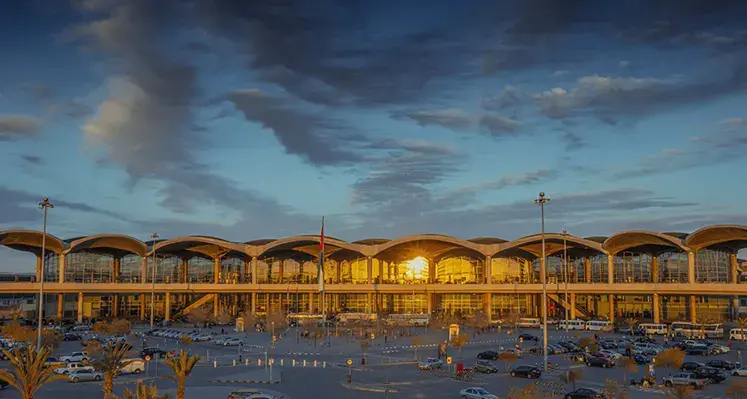
Smart cleaning innovation elevates QAIA passenger experience. (Image source: Queen Alia International Airport)





